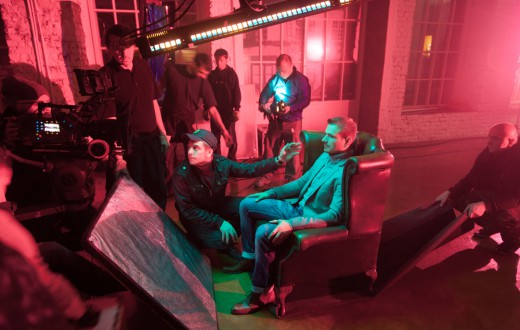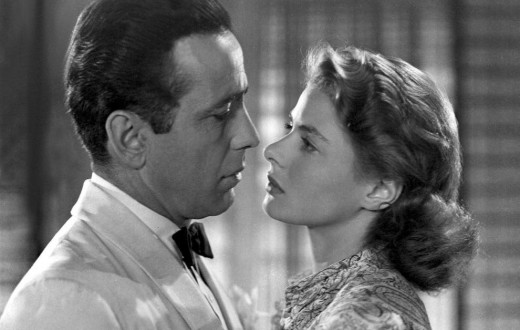Odds are you’ve heard of an agent before. They’re the people who hold the key. They get you into the rooms for the casting directors that will book you in your next big role. And the rest is history. But, what’s a manager?
When most people think of managers they picture the guy with their schedule in their hands and the phone glued to their ear. They’re the person who gets you the car you need to get to set, they help you balance your everyday life with your career, they know exactly what kind of path your career is on, and they work hand in hand with your agent, publicist, and lawyers once you’ve hit it big. But, here’s the catch: Managers aren’t just for when you’ve hit it big! And, sometimes, having a manager before you’ve even locked in your perfect agent could be the right move for the newly emerging actor.
 “Before we even talk about all the things the manager should do, it should be noted that for each actor, in different phases of their career, a manager’s function is different. Agents always function in one capacity and that’s to procure employment opportunities. But a manager has a different job at the beginning [of an actor’s career] then they do in the middle, then they do in the developed career, then they do in the star career, then they do in the megastar career,” explains talent manager and MKSD Talent Management founder Jeff Mitchell. Okay, so maybe you just got a little more confused. Yes, the manager’s job is always changing. So, what exactly do they do? In order to simply break down what his job actually is, Jeff Mitchell decided to use the analogy of building a house: “If you don’t know how to build a house, you don’t know who the best roofer is, or who the best floor guy is, and who’s the guy who’s going to come and say he’s going to do the floors and show up and do a good job and use top quality material, you hire a general contractor. And he’s the person who supposedly has the expertise and the know how of how to put the whole team together to build a great house.
“Before we even talk about all the things the manager should do, it should be noted that for each actor, in different phases of their career, a manager’s function is different. Agents always function in one capacity and that’s to procure employment opportunities. But a manager has a different job at the beginning [of an actor’s career] then they do in the middle, then they do in the developed career, then they do in the star career, then they do in the megastar career,” explains talent manager and MKSD Talent Management founder Jeff Mitchell. Okay, so maybe you just got a little more confused. Yes, the manager’s job is always changing. So, what exactly do they do? In order to simply break down what his job actually is, Jeff Mitchell decided to use the analogy of building a house: “If you don’t know how to build a house, you don’t know who the best roofer is, or who the best floor guy is, and who’s the guy who’s going to come and say he’s going to do the floors and show up and do a good job and use top quality material, you hire a general contractor. And he’s the person who supposedly has the expertise and the know how of how to put the whole team together to build a great house.
So, the general contractor, the person in charge who knows how the whole thing’s supposed to come together and pull all the professionals in, is the manager. And the subcontractors, the people doing each one of the jobs on the house, is equivalent to the agent, the publicist, the lawyer, all the people who are in the team for building your career.” Meaning that a manager can help an actor make those beginning connections and even find the right agent for the actor before all of those extra responsibilities for the manager might come into play! Makes sense, right? But to put it in even simpler terms: “The manager’s job is to counsel and advise in all matters both personal and professional.”
Phew! Now that we got all of that confusion out of the way, are you thinking about getting a manager of your own? Well, unfortunately, just because they may not be as well known amongst aspiring actors that doesn’t mean that finding the right manager for you is going to be any easier. Just like going about your search for an agent, finding a manager is based in three key things: Connections, Research, and, of course, Talent. “I think any rep will say talent [is what they look for]. Which is always paramount. But I have a lot of factors that I weigh when I’m deciding on working with someone. I will say that I put a lot of thought into how a potential client and I will interact if we worked together. That’s important to me for that dynamic [the actormanager relationship] not to cause stress or anxiety in me. All actors have a natural anxiety of never working again…but how does that manifest itself?” says Bernard F. Bunye of Brownstone Entertainment Management, “Do your research. Look at their [the manager’s] roster. Look at what those clients are doing. When I’m courting a potential client, I actually insist on them to talk to a current client.” In fact, getting into the roster for a manager may be a bit tricky because managers usually work with fewer clients. However, with the help of workshops and manager showcases, you can start to build those relationships that will land you with your perfect manager. “The single best way to get an agent and a manager is to do agent and manager workshops and casting director workshops at the various places in New York and LA that provide them. Because, yes, there’s a fee, but that is the single best way to get your face, your body, and your work in front of people who could change your career,” shared long time talent manager and Mitchell/Rudolph Casting CD, Jeff Mitchell, “And then the second best way to get an agent or a manager is to have your [casting website] profile page up to date with high quality video, reel, or performance reel that you’ve created for yourself. And emailing the solicitation pitch/link to those people with their ability to click on it, see your pictures, and watch your video.” And all the hard work can really pay off! Because if you’re lucky enough to sign on with that perfect manager, fewer clients means more individual attention. So, even though it may be harder to get in the door, getting a manager when you can is still an important thing to do. Or, as Jeff Mitchell put it: “The best time to get a manager is anytime you find a good manager who’s interested in helping you!”
 But, let’s be clear here. More individual attention does NOT mean that once you have a manager you can just sit back and relax. Like any industry relationship, an actor needs to work alongside his or her manager and the actor needs to help nurture and grow his or her career along with their representation. In fact, talent manager Bernard F. Bunye stressed that, “being really open to criticism and recognizing that you have to participate in your own success” are vital things for actors to do in order to assist their representation. And, just like if you had an agent, a lot of the footwork is in the actor’s control as well. “Agents and managers don’t want to open the door for you, they want you to be the person that opens doors for them,” explained Jeff Mitchell, “You have the same responsibilities you do if you don’t have an agent or a manager which is to do the work yourself. And the primary way to do the work yourself is to get your a** in front of casting directors and as much as you can create relationships. You want the agent or the manager to get you into rooms? Well, why don’t you get into the rooms first? Go to casting director workshops, do amazing, incredible work for casting directors, then give your agent or your manager a list of the people who you just worked in front of who love you to death and want to see you, create your own relationships, and start getting demand coming from your end into the agent or manager’s office. Then you’re going to have an agent or a manager who works doubly hard for you because they know you’re not sitting around waiting for them to call you.”
But, let’s be clear here. More individual attention does NOT mean that once you have a manager you can just sit back and relax. Like any industry relationship, an actor needs to work alongside his or her manager and the actor needs to help nurture and grow his or her career along with their representation. In fact, talent manager Bernard F. Bunye stressed that, “being really open to criticism and recognizing that you have to participate in your own success” are vital things for actors to do in order to assist their representation. And, just like if you had an agent, a lot of the footwork is in the actor’s control as well. “Agents and managers don’t want to open the door for you, they want you to be the person that opens doors for them,” explained Jeff Mitchell, “You have the same responsibilities you do if you don’t have an agent or a manager which is to do the work yourself. And the primary way to do the work yourself is to get your a** in front of casting directors and as much as you can create relationships. You want the agent or the manager to get you into rooms? Well, why don’t you get into the rooms first? Go to casting director workshops, do amazing, incredible work for casting directors, then give your agent or your manager a list of the people who you just worked in front of who love you to death and want to see you, create your own relationships, and start getting demand coming from your end into the agent or manager’s office. Then you’re going to have an agent or a manager who works doubly hard for you because they know you’re not sitting around waiting for them to call you.”
So, all in all, a manager’s job can overlap with that of the agents Especially in the beginning stages of an actor’s career. But having a manager in your wheelhouse means having someone who helps guide your next move, put your team together for you, and pull together the brand and career trajectory you’re going for. So do what you need to do for yourself, research and land that perfect manager, and then, one day you’ll have a manager who won’t just be getting you in the doors and organizing your schedule but they’ll be following you down the red carpet!







